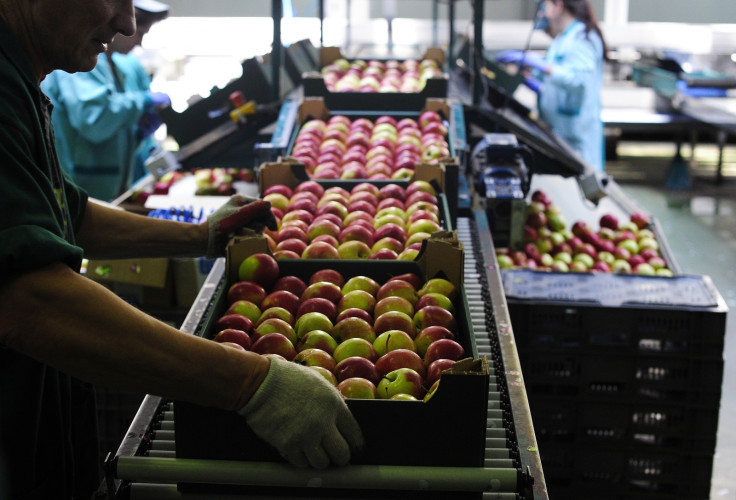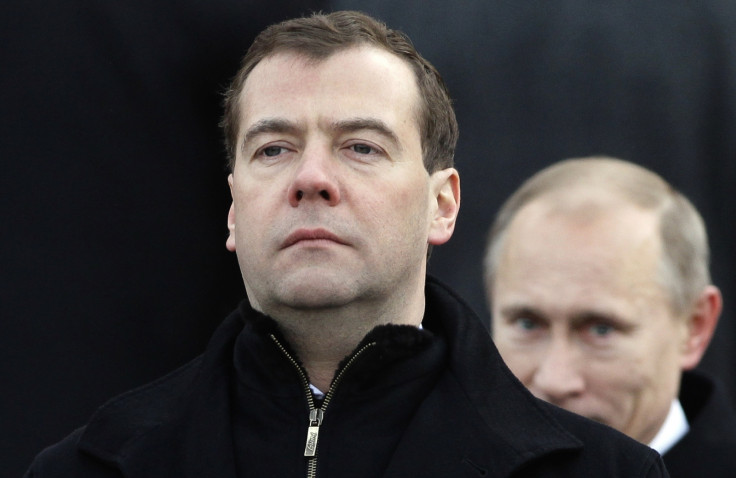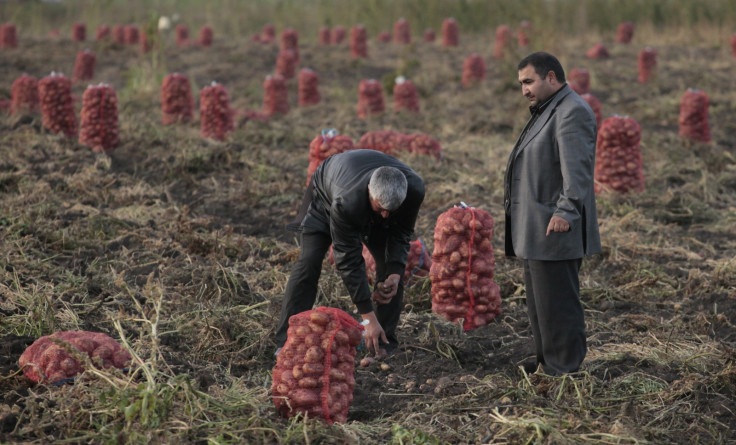Poland Seeks WTO Action Which Could Cripple Russian Economy

Poland has urged the European Union to report Russia to the World Trade Organisation in an effort to remove its ban on fresh food from the EU.
If successful, the long-term result of the appeal could be a banning of Russian produce from some of the world's largest consumer markets.
Agriculture minister Marek Sawicki has written to the EU's trade commissioner Karel De Gucht, requesting the department mounts a legal challenge.
Poland feels that the across-the-board ban on fruit, vegetables, fish, meat and dairy products from the EU, US, Norway, Canada and Australia contravenes WTO regulations on free trade.
Should the appeal be successful, it could lead to the WTO permitting the EU and other sanctioned bodies to issue retaliatory bans on Russian goods, IBTimes UK understands. However, the appeal process is multi-faceted and could take years to return a result.
The WTO cannot, however, force any party to remove trade sanctions and, despite reports elsewhere to the contrary, it is understood that the WTO does not have the authority to issue fines or any direct financial penalty.
Russia ignores WTO
Russia's unilateral action has bypassed any official WTO procedures – despite the fact that the sanctions imposed by the EU, US Norway and Canada may have done the same.
"There is one case where WTO members may introduce a ban unilaterally and without reference to the WTO - when the UN Security Council has instituted such a ban. Then WTO members can implement the Security Council resolution," Eric Pickett, an attorney and expert on WTO law told IBTimes UK.
This was the model under which the west issued sanctions on Iran, based on a list of items the Security Council said should not be sold to the country.

"To my knowledge we haven't got such a resolution in respect of Russia. If Russia were to bring a WTO case, it's entirely possible they could establish the sanctions were in violation to the WTO law. However, that would have to be established by the panel," Pickett said.
The ban on food from the west has initially been set for one year from 7 August. Russian officials – including prime minister Dmitry Medvedev – have made statements in recent days implying that the ban will not last for that long. Others, however, have implied that Russia is keen to rollout further bans on western cars, for instance.
According to an ITAR-TASS report, one of Russia's top lawmakers, Vladimir Gutenev, said that the possibility of Russia banning cars, tobacco and wine from the EU and US is a real possibility.
"If sanctions are not lifted, Russia may respond quite seriously in this sphere as well. The proposals to restrict wine deliveries to Russia from Germany, France and Italy do not look so foolish. And then we can speak about the promotion of Crimean wine products which, incidentally, have received numerous awards," he said.
Poland's appeal, if successful, could deter Russia from introducing similar sanctions in the future. The EU could act in the hope that prospect of a ban on Russian produce on western markets is enough to force Russia's hand. Such sanctions could further cripple its struggling economy.
Serial rule-breaker
Russia joined the WTO in 2012, but is accused of regularly breaking the rules.
Earlier this year, America's permanent representative to the WTO, Michael Punke, spoke of concern around "a general rejection by Russia of one of the underlying goals of the WTO: the reduction of barriers to global trade, acutely demonstrated by recent trade actions aimed at members particularly reliant on trade with Russia".
Punke was referring to the punitive bans Russia had placed on mainly meat imports from Ukraine, Poland, Lithuania and Moldova, in response to the countries' support for Ukrainian rebels; although Russia officially cited health and safety concerns for the embargo.
Poland exports almost €900m (£700m, $1.16bn) in fresh food to Russia every year. The country is the world's largest apple exporter, with a substantial amount of the crop going to Russia.

Despite the European Commission announcing a £100m emergency funding package to purchase Russia-bound stocks from European farmers, Poland's push to overturn the Russian ban highlights the fears around the Eurozone that the sanctions could push the region into recession.
While Medvedev has said that Russia is "a country that can and must feed itself – and not only feed itself, but supply other countries", analysts predict that it will be the main victim of its own ban on food imports.
Approximately 43% of Russia's food comes from outside its borders, with a large portion of this coming from the EU. News that it will allow imports of food which is processed in Belarus are unlikely to make a dent in the market gap, given Belarus' underdeveloped processing capabilities.
A report in the Financial Times this week warned of the post-Soviet hangover which plagues Russia's agricultural sectors.
In the post-Communist era, the country focused on "quick profits in trade, mining and financial services", with the breakup of state-owned farm leading to a drastic fall-away in productivity and yields.
The brunt of the burden has, thus far, been borne by Russian consumers. In Moscow, officials said that in less than a fortnight since the ban came into place, frozen fish prices are up 6%, milk 5.3% and cheese by 4.4%.
© Copyright IBTimes 2025. All rights reserved.






















